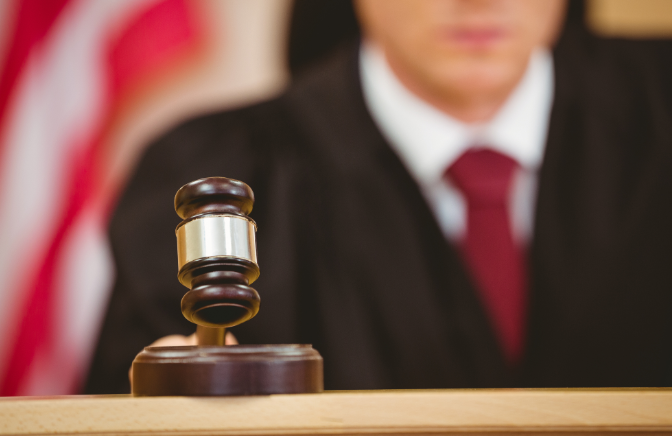The courtroom drama surrounding former President Donald Trump has taken another twist. Recently, a judge granted his request for a hearing focused on the delicate matter of attorney-client privilege. This legal term carries weight in discussions about confidentiality between clients and their lawyers. As this case unfolds, it raises questions not only about Trump’s legal strategies but also about the broader implications for our judicial system.
What does this mean for Trump’s defense? How will it impact other high-profile cases? Join us as we delve into the nuances of attorney-client privilege and unpack what this recent development truly signifies.
Explanation of Attorney-Client Privilege
Attorney-client privilege is a fundamental legal concept. It protects the confidentiality of communications between a lawyer and their client.
This privilege encourages open dialogue. Clients can share sensitive information without fearing it will be disclosed. Such honesty is essential for effective legal representation.
The scope of this privilege varies by jurisdiction, but generally applies to any communication made for the purpose of seeking or receiving legal advice.
There are exceptions, though. In cases involving ongoing criminal activity or future harm, this protection may not hold.
Understanding attorney-client privilege is crucial in navigating the complexities of law. It safeguards personal rights while ensuring justice prevails in society’s intricate fabric.
Trump’s Request for Hearing on Attorney-Client Privilege
Recently, Donald Trump made headlines by requesting a hearing focused on attorney-client privilege. This legal principle protects communications between attorneys and their clients from being disclosed in court.
Trump’s request is significant given the ongoing investigations surrounding him. The nuances of attorney-client privilege are critical in understanding how this could affect his legal strategy.
He argues that certain documents withheld due to this privilege must remain confidential to ensure fair representation. His legal team believes these protections are essential for maintaining trust during sensitive discussions.
Opponents argue that invoking such privileges can sometimes hinder transparency, especially when serious allegations are involved. It raises questions about accountability while still preserving fundamental rights within the American justice system.
The upcoming hearing promises to be pivotal as it may set crucial precedents regarding the balance between client confidentiality and public interest.
Arguments For and Against the Request
Supporters of Trump’s request argue that attorney-client privilege is fundamental to a fair legal process. They believe that this right safeguards confidential communications, allowing clients to share sensitive information without fear. Upholding this privilege can encourage open dialogue between lawyers and their clients, ultimately fostering justice.
On the other hand, critics contend that such privileges should not shield potentially criminal behavior. They assert that if communications involve illegal activities or fraud, they shouldn’t be protected under any circumstances. This perspective highlights the need for accountability and transparency within the legal system.
Moreover, some worry about setting a precedent where high-profile individuals exploit attorney-client privilege as a means to avoid scrutiny. Maintaining balance in these cases is essential for preserving public trust in law enforcement and judicial processes while ensuring due rights are respected.
Impact on the Legal System
The recent ruling granting Trump a hearing on attorney-client privilege could reshape legal practices significantly. This decision underscores the delicate balance between protecting confidential communications and ensuring accountability.
If upheld, it may embolden other high-profile figures to challenge similar restrictions. The case highlights how privilege can be perceived as a shield for those under scrutiny, potentially leading to abuses of this protection.
Furthermore, legal professionals might need to reconsider their strategies when advising clients in sensitive situations. The ramifications extend beyond one individual; they touch upon the foundation of trust that exists within client-lawyer relationships.
This scenario raises questions about transparency and ethics in law. As more cases arise involving privileged conversations, courts will have to navigate these complex waters with care.
Similar Cases and Precedents
The realm of attorney-client privilege is filled with complex cases and varying interpretations. One notable precedent is the case of *Upjohn Co. v. United States*, which highlighted the importance of protecting confidential communications between a corporation and its legal counsel.
Another significant example is the *United States v. Nixon* case, where the Supreme Court ruled that presidential communications are not always protected under this privilege, especially in criminal investigations. This set a vital standard for how far such protections can extend.
Additionally, cases involving figures like Michael Cohen have stirred debates about privilege limits when it comes to illicit activities or fraudulent conduct. Each instance sheds light on how courts navigate these intricate issues while balancing privacy rights against public interest concerns.
As new cases arise, they often draw from these established precedents, shaping future rulings and interpretations of what constitutes attorney-client privilege in various contexts.
Conclusion
The recent decision where a judge grants Trump’s request for a hearing on attorney-client privilege has sparked significant interest. This development touches on crucial elements of legal rights and the boundaries of confidentiality between clients and their attorneys.
Legal experts are closely monitoring these proceedings. The implications could reverberate through both political and legal arenas, creating new discussions about privacy rights within the judicial system. As we await further developments, this case illustrates just how complex and pivotal issues around attorney-client privilege can be in today’s society.

